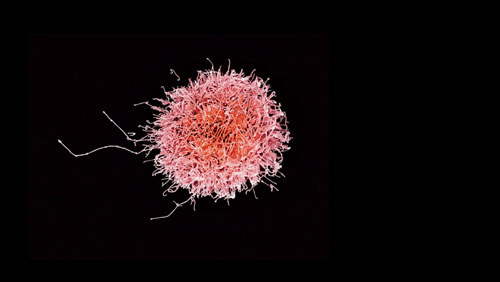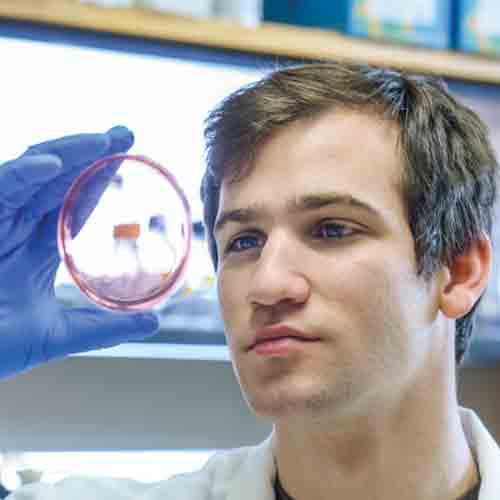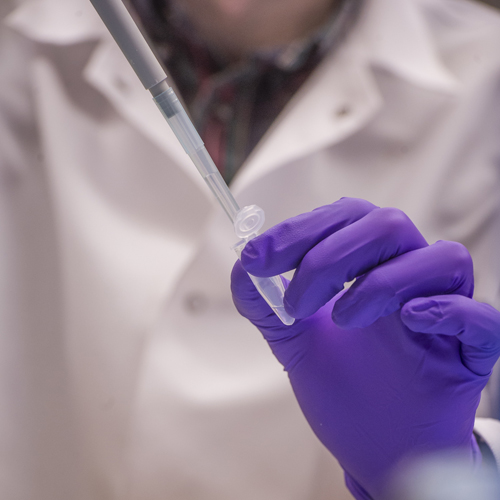Immunology at UAB is an interdisciplinary program between the Department of Microbiology in the Heersink School of Medicine and the Department of Biology in the College of Arts and Sciences. It provides an immunology-focused curriculum in addition to a broad-based education in the fundamental aspects of biology, microbiology, chemistry, physics, and mathematics. This curriculum will satisfy most pre-medical and pre-health requirements, making it an ideal choice for those students who have an interest in pursuing careers in:
- medicine
- biomedical research
- health-related professions, or
- science-related professions (including teaching science, science communication, or policy).
Apply NowOpens an external link.Request More Info Schedule an Information SessionOpens an external link.
What is Immunology and Why Study It?
Immunology is the study of the structure and function of the immune system at the molecular, cellular, and physiological level.
The immune system interacts with every part of the body and plays a critical role in both health and disease processes. Because the immune system impacts every part of the body, studying the immune system is a logical choice for those who have an interest in the health professions and biomedical research.

Majoring in Defense
The future cures or treatments for many of the diseases that are of national and global concern will be dependent on our ability to successfully modulate the immune system.
Immunology is interdisciplinary by nature and has direct ties with the fields of biochemistry, cell biology, cancer biology, infectious diseases, neurobiology, endocrinology, and cardiology. Additionally, efforts to harness the immune system to fight microbial pathogens and cancer rely on technologies derived from chemistry, biomedical engineering, mathematics, and physics.
Career fields related to immunology, including physicians and medical and clinical laboratory technologists, are expected to have higher-than-average growth between 2014 and 2024.
Why Study Immunology at UAB?
UAB faculty within the areas of immunology, biology, microbiology, and medicine provide mentorship opportunities for students in the undergraduate immunology program. Faculty mentors include Dr. John Kearney, who was recognized by the American Association of Immunologists (AAI), receiving the AAI-BioLegend Herzenberg Award for “outstanding research contributions to the field of immunology in the area of B cell biology.” Additionally, UAB was named #27 in the “Best Global Universities for Immunology” by U.S. News & World Report for showing “strength in producing research related to immunology.”
Our students have the opportunity to present at laboratory meetings, and some students may also present at local and national research meetings. If a student’s work is exemplary, it's possible for them to contribute to publications, even as an undergraduate student. Students in the UAB Undergraduate Immunology Program are strongly encouraged to ask novel questions and to pursue research ideas that are innovative and on the cutting edge of science.
Expectations for Our Graduates

Students graduating with a Bachelor of Science degree in Immunology are expected to be able to:
- Demonstrate and apply an integrated knowledge of microbial pathogens — including their physiology, transmission, and interaction with the host immune system — and immunology as it relates to host defense against a range of microbial pathogens or cancer, as well as disorders of the immune system.
- Demonstrate knowledge of basic principles of genetics, molecular, and cellular biology.
- Apply, evaluate, analyze, as well as compare data and scientific information using critical thinking skills and scientific inquiry.
- Communicate scientific information effectively (written and oral skills).
- Participate in laboratory research; demonstrate the acquisition of both theoretical knowledge and technical skills used in immunology and infectious diseases research as it relates to host defense, global health, and disorders of the immune system; and develop a fundamental appreciation of the scientific method as it pertains to basic, translational, or clinical research.
- Understand and be sensitive to important issues in the community and global health.
- Serve as active participants in the immunology community and pursue career goals in the health-related professions and research.


